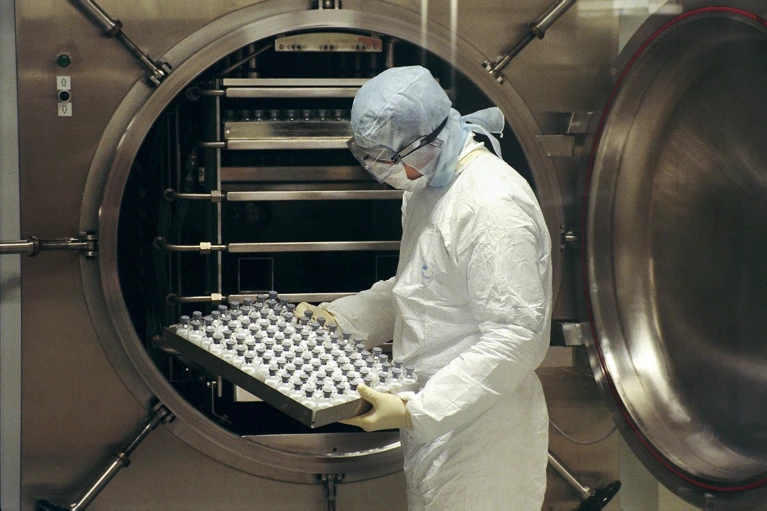A simple blood test might reveal which of 18 chronic diseases a person is likely to develop. Researchers call their discovery an “age clock,” as analyzing certain proteins can also estimate a person’s potential lifespan.

This “age clock” in the blood can predict the risk of heart disease, cancer, diabetes, or Alzheimer’s, among other conditions. The test focuses on 18 chronic diseases, particularly those associated with aging, and aims to calculate how long a person might live.
The findings were reported in the journal “Nature.” Austin Argentieri, a population health researcher at Massachusetts General Hospital in Boston, leads the project. He explained that the study involves analyzing 204 proteins in the blood, which could predict a person’s lifespan if they don’t take steps to mitigate their risks. “Ultimately, the desire to live longer will come down to preventing chronic diseases,” Argentieri said.
This study was also published in “Nature Medicine.” The method proposed by Argentieri determines a person’s biological age, which can differ significantly from the chronological age listed on their birth certificate. Some people may become frail and require a walking aid by age 60, while others might still enjoy skiing vacations at 80.
These differences result from accelerated or slowed aging processes at the cellular level, often driven by chronic, initially imperceptible inflammations. Proteins serve as indicators of these changes. By identifying the right aging markers, the speed of physical decline can be calculated based on their quantity.
To identify the most relevant proteins, U.S. researchers analyzed data from 45,441 randomly selected individuals stored in the UK Biobank, a repository for biomedical samples. The 204 proteins identified can predict biological age with surprising accuracy, indicating who may die early and who might outlive most others.
Collagen, elastin, and inflammatory substances
Among the predictive proteins are elastin and collagen, well-known to buyers of anti-aging skin creams for their role in maintaining connective tissue. The study also identified proteins involved in immune response and hormone regulation.
The team later developed a smaller age clock using just 20 proteins, which is nearly as accurate and could potentially be marketed as a test cartridge for medical practices due to its simplicity.
Both clocks were tested on biobank samples from China and Finland, involving a total of 6,000 individuals. In most cases, the protein profiles closely matched the donors’ chronological ages. However, in some samples, the biological age appeared significantly higher than the actual age.
This discrepancy was usually explained by the presence of early-stage chronic diseases that accelerated cellular aging. Conditions such as neurodegenerative diseases, osteoporosis, macular degeneration, cancer, and diseases of the heart, kidneys, and lungs were found to speed up the aging process. The effects were particularly pronounced in Parkinson’s disease, diabetes, rheumatoid arthritis, and liver diseases.
Ten percent remained young for longer
The aging detected by the protein clock was also linked to physical frailty, slower reaction times, and premature death. The databases not only recorded parameters at the time of donation but also tracked how long the donors lived and their causes of death.
The study has received praise from peers. Sara Hägg, a molecular epidemiologist at the Karolinska Institute in Stockholm, noted the large dataset and the method’s consistent performance across different datasets as the study’s two main strengths. “It’s a very robust piece of work,” she told “Nature.”
In the next step, Argentieri aims to discover which environmental and behavioral factors cause the proteins to age the body. “OK, you can tell me something about my future risk for 18 different diseases,” Argentieri said. “But is there anything I can do to change that?”
The blood age clock also shows that some people age more slowly than their birth date would suggest. Among the ten percent of study participants who remained youthful seniors, Argentieri noted, “less than one percent developed dementia or Alzheimer’s.” These individuals are of particular interest to geriatric researchers.
While it’s not yet clear whether their near-biblical health is due to environmental factors, genetics, or a combination of both, understanding this could lead to the development of drugs that slow aging in others.
After all, the search for the fountain of youth is still very much alive in this field of medicine.





